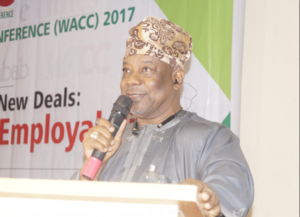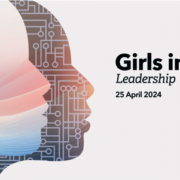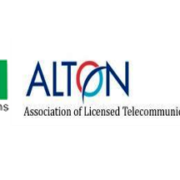By Hon Mohammed Ogoshi Onawo
Let me start by stating the obvious: Information and Communication Technologies (ICT) has supported employment explosion and enhanced employability not to state that it has created the youngest billionaires in recent times. Today, we do not look at ICT in isolation. We look at how ICT has helped to foster convergence of once stand-alone sector to become one that has converged with another sector so that there’s endless debate today, for example, whether the broadcast sector and the telecom sector should be deemed as one.


Technology convergence is re-ordering the labor markets – making it more innovative, inclusive and global
Increasingly, the development of ICT has encouraged the convergence of convergence – that is convergence across industries and across verticals so that we talk of the heavy presence of ICT in the automotive industry, the oil & gas industry, the medical and pharmaceutical fields, the agriculture industry and the likes. Today, cars are no longer just auto in the sense of automatic, cars are self-driven, remotely repaired and serviced propelled by the fusion of the automatic and Internet industries; the big screen cinema has entered our homes and the banking industry is part of our domestic chores because industries verticals have converged. The possibilities are endless and dynamics are unpredictable.
Everything has converged in the age of the Internet of Things (IoT) and the natural questions to ask include: what is the future of work, the future of the labour market, the future of our young people, and the future of our country? Convergence is enabling new forms of work, altering the structure of jobs and the way people develop their career, and the way they work.
Will the ageless question over whether the adoption of ICT can increase or decrease the demand for skilled workers as against unskilled workers be further reinforced in the convergence era to deepen the posers on the employability of our youths? What does convergence hold for young people in terms of employment and what does it hold for entrepreneurship in terms of creating and sustaining businesses for a generation of new and young Nigerians? These are both policy and structural questions that engage government and every stakeholder.
“The rise and rise of the internet has significantly change how individuals and corporate entities engage jobs; the workplace has changed, so too the nature of work.”
I am glad that the organisers of WACC 2017 have sought to bring this area of concern to public scrutiny and engagements. I dare say we are contending with the dynamics of technology, the reality of convergence and the contentious social and economic issues over employments and business opportunities for our youngsters in this trying economic times.
What are the ‘New Deals’ that Convergence offers? How do we thicken the value of Entrepreneurships and Employability in the era of industry and technology convergence? It is gladdening to note that today at this 2017 WACC gathering, there are global tech giants, policy makers and regulators, BPOs and HMOs, technology hubs, major drivers of the local ICT companies, and other stakeholders, all of them converging to articulate a future and a hope for a country and her people desiring great changes and strides.
“Access and ability to use technology POSITIVELY impacts employability and small medium businesses (SMBs). Digital skills significantly increase not just employability and sustainability of the employment but also wage levels.”
While accurate employment data are very hard to obtain, it may be safe to assume that, at least at least, around 1.8 million youth are entering the labor market every year. The pervasiveness of the unemployment is obvious and government is not relenting to tame the scourge which in itself is global. These are facts: Access and ability to use technology POSITIVELY impacts employability and small medium businesses (SMBs). Digital skills significantly increase not just employability and sustainability of the employment but also wage levels.


Skills development, aligned with changing dynamics of an industry or an economy imply ability to foster new careers that can contribute positively to the economy
Very important to note is that the rise and rise of the internet has significantly change how individuals and corporate entities engage jobs; the workplace has changed, so too the nature of work. Factors that shape job success have changed in an age where the internet offers unprecedented job trainings, job matching social networks that determine our employability.
































